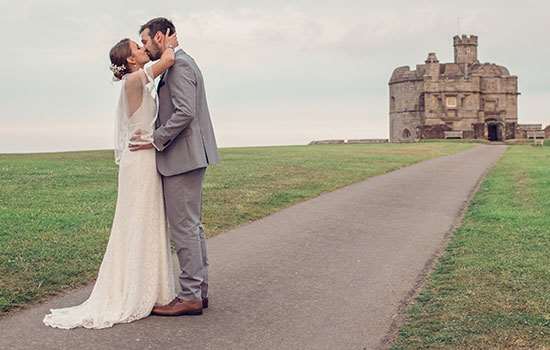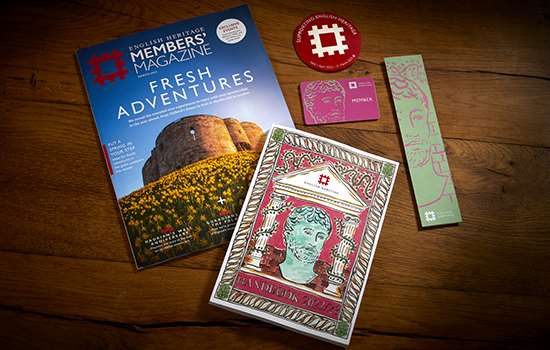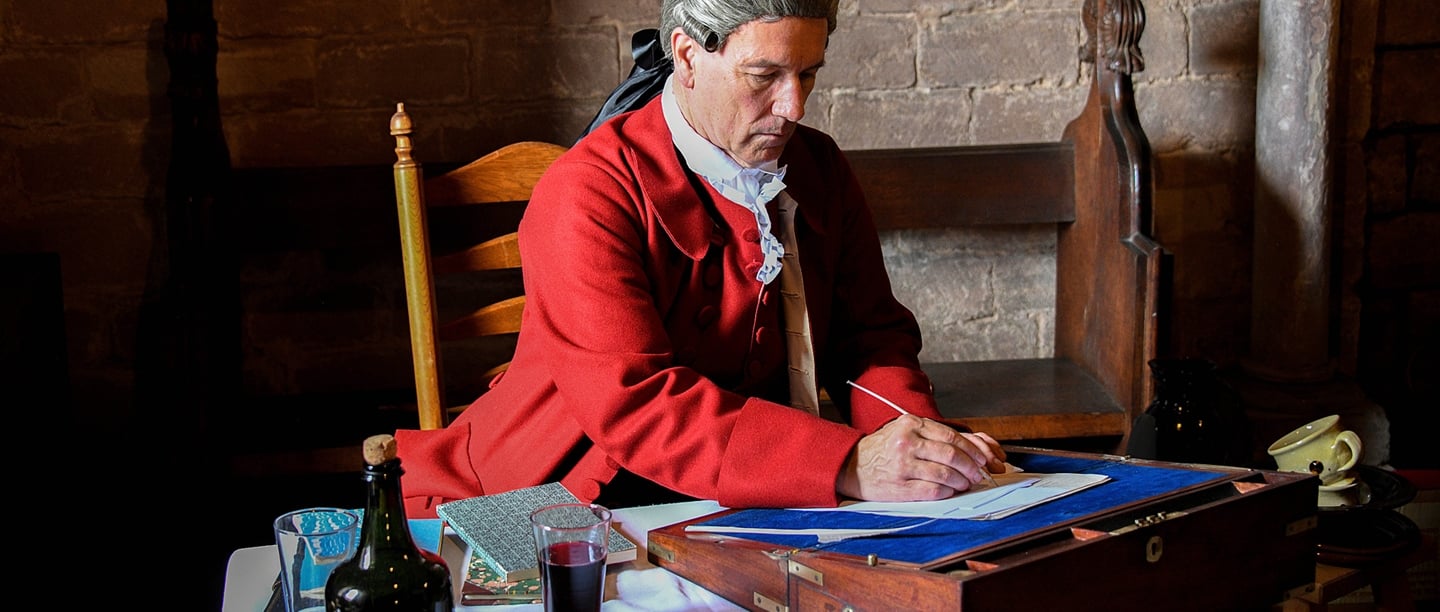1. QUEEN VICTORIA: FOCUS ON A MEMORY YOU'VE SHARED TOGETHER
Create the structure around a shared experience, for example the first time you met, a memorable date, even your wedding! This 1839 letter from a soon to be married Prince Albert to Queen Victoria, focuses on the young lovers last meeting:
'How that moment shines for me still when I was close to you, with your hand in mine. Those days flew by so quickly, but our separation will fly equally so'.
Visit Osborne House2. CHARLES DARWIN: DON'T FOCUS ON THEIR FLAWS
Before marrying his wife Emma, Charles Darwin wrote a list of pros and cons regarding the nuptials, in it he muses that a wife is an ‘object to be beloved & played with — better than a dog anyhow’. Luckily the wedding went ahead despite this, Darwin made up for his previous writings with a love letter he gave to Emma in 1839 before their Wedding Day:
'How I do hope you shall be happy as I know I shall be. My own dearest Emma, I earnestly pray, you may never regret the great and I will add very good, deed you are to perform on the Tuesday: my own dear future wife, God bless you…'.
Visit Down House3. ELIZABETH I: WRITE EVERY WORD LIKE IT'S YOUR LAST
Elizabeth l and her suitor, Robert Dudley frequently exchanged love letters until his death in 1588, whilst on route to Kenilworth Castle; which Dudley created to impress his Queen in 1575. After Elizabeth’s death 15 years later, a small box was found by her bed, in it was Dudley’s final letter to her, Elizabeth had written on the envelope ‘His last letter’.
Visit Kenilworth Castle and Gardens4. CATHERINE HOWARD: BE SURE TO SEND IT TO THE RIGHT PERSON
In 1541, whilst 8 months into her marriage with King Henry Vlll, Catherine Howard wrote a love letter whilst at Lyddington Bede House to Thomas Culpepper, a gentleman of the Kings privy chamber. However, the letter was discovered, both Culpepper and Catherine were arrested and put on trial for treason. By the end of the year Catherine’s lover Culpepper had been executed.
Visit Lyddington Bede House5. LETTERS FROM THE SOMME: BE YOURSELF
Cornish boy John Glasson Thomas ‘Tommy’ met Gertrude Brooks ‘Gertie’ on the eve of WW1. The two formed an instant bond and wrote to each other through Tommy’s retention at Pendennis Castle and the Battle of the Somme. The letters are a mix of day to day news; Cornish pasty based jokes, and small bursts of affection:
Tommy to Gertie, 16th October, The Somme:
(Your)’letter arrived just before we marched and I can assure you I was delighted to get it. Twas like a ray of light on what had been a dull time of weary work for me, and shed a sort of consoling ray on the winding up'.
Tommy died in 1917, cutting their love story tragically short. However Tommy’s letters stayed with Gertie, and she never married. Years later Gertie wrote to her niece: 'nobody could take the place of the one I lost'.
Visit Pendennis CastleMore to Explore
-

Weddings
From 16th century castles to royal retreats, our historical sites can offer that unique setting for the wedding ceremony of your dreams.
-

The English Heritage Podcast
Join presenter Charles Rowe as we bring the history of our sites to life with news, views and expert interviews across over 100 episodes.
-

Days Out with Dogs
There are plenty of dog-friendly sites across the whole of England for you to enjoy alongside your furry friends.
-

Become a Member
Start a year of adventure. An English Heritage membership offers an unlimited annual pass to over 400 historic sites across the country.
